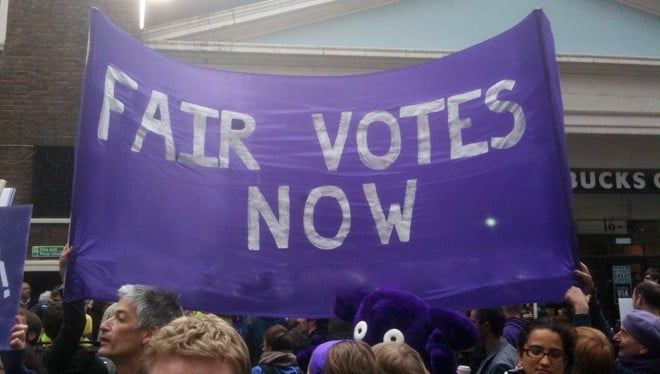
The assumption that electoral reforms must include a neutral setup is grossly erroneous

The framers of the original 1973 Constitution did not envision a caretaker government. Since constitutions are not supposed to be static documents, they are constantly subjected to amendments proposed by the parliament. Under one such amendment, Twentieth Amendment to be precise, the procedure for a neutral caretaker setup is now formally laid down in our constitution.
The last election was held under that amended constitution and yet allegations of foul play and rigging refuse to die down. If you smell a sense of irony here, ignore it because there isn’t; just some plain lack of common sense.
The political forces, in all probability, decided to bring about this amendment because of the country’s peculiar history. It was conceived first in 2006 in the Charter of Democracy (CoD) signed between the leaders of the two largest political parties who also happened to be two former prime ministers, Benazir Bhutto and Mian Nawaz Sharif. The catalyst for this particular clause perhaps was not just the result of the 1977 election that led to the country’s worst martial law; this clause also was aimed to wrest control from the establishment which had been instrumental in dissolving the elected parliaments in the decade of 1990s and putting up hand-picked ‘neutral’ caretaker governments in their place.
Actually, the assumption that electoral reforms include putting in place a neutral caretaker setup before the election is grossly erroneous. A caretaker government cannot of itself guarantee free and fair election. In democracies the world over, it’s the election commission that acts as the caretaker government. To have a provision in the constitution for a neutral caretaker setup is an admission that other safeguards, the biggest of which is an independent election commission, are not in place.
One should have expected better from leaders of this stature. Once they had specified in the COD that "there shall be an independent, autonomous and impartial election commission", that was where the matter should have rested.
Apart from the election commission which is an institution especially tasked to hold election, in other countries it is the sitting governments that get into the caretaker mode. This means that the incumbents are expected to follow certain conventions in a certain period before the election, and the election commission can take them to task if they don’t. These conventions are largely about abstaining from performing certain functions than about doing them: for instance, the sitting government is expected to not take major policy decisions, not make appointments to key positions that would in any way impact the election, not enter into major contracts or negotiations, not make important foreign visits and many such things.
Caretaker governments, the way we envisage them, create more problems than they solve. The intention is to pick credible people from society and put them at the helm for three months. But once at the helm, they are not clued in on how things work in the government and, therefore, end up maintaining the status quo as well as losing their credibility.
These and other problems are identified by Pildat in its report titled "Agenda for Electoral Reform in Pakistan After 2013 General Election". It looks at the caretaker governments appointed for the 2013 election and pinpoints three weaknesses in the system: a political party which is a coalition partner may part ways with the government just before the election to claim the office of leader of the opposition and impact the formation of caretaker governments; these governments have not proved to be neutral and effective because they are believed to be beholden to the appointing political party; and finally, as stated earlier, these are not conversant with the systems of the government and the three or four months they have at their disposal are "consumed in learning".
Pildat suggests "the system of appointing caretaker governments should be reviewed". As the parliamentary committee deliberates over electoral reforms that lead to a credible general election, a sincere suggestion would be to abolish the idea of caretaker governments altogether and work towards a real independent election commission.
It is important to weed out this useless idea of caretaker government from the constitution because, given our history, we could always move a step ahead and jump on to the much quoted -- though absolutely undemocratic -- Bangladesh Model.